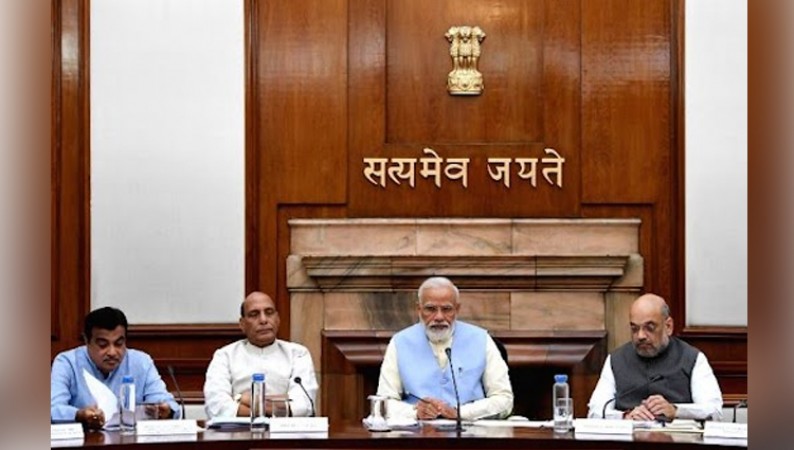
NEW DELHI: The Jan Vishwas (Amendment of Provisions) Bill, 2022, which seeks to decriminalise a number of offences in 42 laws, including minor ones that carry jail time, is set to be discussed by the union cabinet.
The union cabinet meeting is presently in session. According to people with knowledge of the situation, the cabinet may also take into consideration amending some of the clauses in the Mines and Minerals (Development and Regulation) Act 1957.
On December 22, 2022, the Jan Vishwas (Amendment of Provisions) Bill, 2022 was tabled in the Lok Sabha with the dual goals of facilitating the ease of doing business and facilitating the residents' quality of life in mind.
It will change about 113 jail provisions in several pieces of law that deal with topics including money laundering, the environment, air pollution, and housing, among others.
The measure was quickly forwarded to a joint parliamentary panel chaired by BJP MP P P Chaudhary. During the budget session in March, the panel had delivered its report to the Lok Sabha regarding the law that had been proposed. The government was advised to implement the changes to the law with "retrospective effect for abating pending legal proceedings in respect of offences being decriminalised," according to the report.
Criminal obligations cannot be imposed retroactively, in contrast to civil liabilities. They can, however, be eliminated with retroactive effect. The bulk of the 183 provisions that were recommended to be changed throughout 42 Acts run by 19 ministries received the panel's general support in its findings.
It frequently advised imposing a penalty rather than a fine to "avoid increase in litigation." It also suggested raising penalties under various statutes. For instance, the panel has proposed raising the fine for the first time use of a government analyst's report for advertising from Rs 5,000 to Rs 1 lakh under Section 29 of the Drugs and Cosmetics Act, 1940, which deals with the penalty.
The panel had also noted that criminalising little acts of omission or commission frequently serves as a tool for the executive to present a powerful image rather than addressing wrongdoing.
The panel had stated that many of the Acts belonged to the British era, when the State mistrusted its inhabitants, but that was no longer the case in the nation, to support its position. It is necessary to address this "overcriminalization" by providing legal justification for the punishments and introducing flexibility. Investors are frequently greatly deterred by the regulatory load.